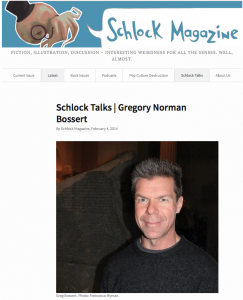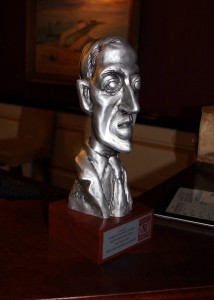Something I do with everything I write: switch the sex of the major characters. Not all at once: one at a time. How does the switch affect my sense of the character’s motivations? How about the relationships: is that other character still a lover, or is it now a friendship, or something else altogether?
And recently, I’ve tried temporarily switching the economic and social status of my characters as well. Would they still chase the bad guy down the sidewalk if they were likely to be shot by the first cop they encountered because of how they dress? Is their poverty a genuine part of their character, or is it just lazy motivation for the plot or an easy play for sympathy?
The goal here is not to create a statement about gender or status—that requires much more effort—but rather to shake loose my assumptions and received ideas & language. For me, anyway, the biggest obstacles to writing something really good is unstudied/implicit assumptions and received thinking & language, all of which are impediments to the precision of observation and language necessary for great fiction.
Dickens, at his best, writes his socially and economically challenged characters with dignity but a lack of any romanticism. They suffer, and that suffering doesn’t make them more noble or sympathetic than the aristocratic characters. Nor does it make them less so. Bleak House, for example, is a fascinating study of characters in/versus status.
There are many writers who set out to challenge the readers’ preconceptions of gender and status. But I’m talking about doing this temporarily on any story—even the giddiest action adventure—to challenge the writer’s preconceptions. Afterward, you’ll probably (but not necessarily) switch the characters’ sex back, but hopefully you’ll have caught those places where you were making lazy and uninteresting assumptions. Some visual artists will flip their work (or look at it in a mirror) or kill the color to shake up their viewpoint and catch problems they were overlooking. This is a writing equivalent.
It’s tricky in genre fiction, which is usually read in the context of its genre, and relies on/riffs off of tropes to avoid having to reinvent the entire universe each time. But for the most part, assumptions about gender and social/economic status are independent of these standards of setting.

